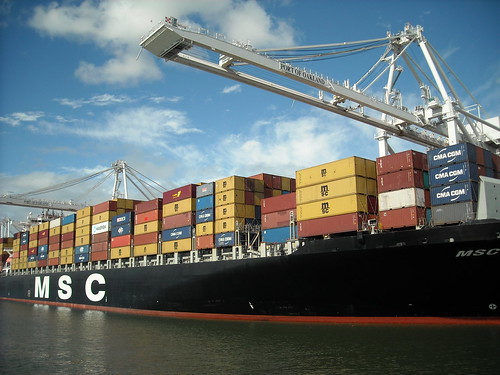
Is an “economic NATO” possible? This striking – and perhaps misleading – expression has been used by some commentators to convey a possible outcome of negotiations between the United States and European Union over the creation of a Transatlantic Trade and Investment Partnership (TTIP). The origins of this proposed partnership date back to November 2011, when a joint High Level Working Group (HLWG) on Jobs and Growth began discussing shared priorities. The HLWG delivered its final report in February 2013, and highlighted a range of options for expanding transatlantic trade and investment. Brussels and Washington are expected to give the green light for negotiations shortly, with talks possibly starting before the summer recess.
It remains unlikely that negotiations will result in a “fortress scenario” in which the US and EU mutually protect themselves from rising economic powers. What can be anticipated, however, is that the TTIP will have significant consequences for global economic security, irrespective of its final shape and structure.
Discussion Points
The reduction of tariff barriers is set to become a major discussion point, and may prove to be among the easiest to achieve. Currently, the average tariff between the US and EU stands at an already low 3.5%. It is expected that a further reduction would benefit the EU to the tune of €119 billion a year and €95 billion for the US. Conversely, negotiations over non-tariff barriers and regulatory affairs are likely to be far more challenging.
Another area of negotiation will revolve around market access conditions, in which a substantial improvement might be equivalent to a 15–20 % reduction in tariffs, as recently estimated by the European Commission. The automobile industry provides an example of the benefits that an agreement on these issues might offer: standards in the US and the EU, especially in terms of safety procedures, are quite different, so that any harmonization would be welcomed by car producers on both sides of the Atlantic. Moreover, car manufacturers from other countries would welcome a simplification of standards, since it would allow them to gain access to both markets and reduce their costs. Last but not least, more openness to foreign investment and public procurement completes the framework of the forthcoming negotiations.
Only time will tell whether this is an ambitious agenda or not (discussions are expected to last between 18 and 36 months). There is clearly a potential trade-off between comprehensiveness and effectiveness. As an EC official reported during a meeting at Chatham House, the strategy to include a broad variety of topics should help to ease pressure applied by lobbies belonging to different business sectors affected by the negotiations and calls for compensation mechanisms on a sectorial basis. In other words, comprehensive negotiations effectively constitute a positive-sum game.
Fringe Benefits?
What is far more certain is that a TTIP would lead to the creation of the biggest Free Trade Area in the world, with the two blocks accounting for nearly half of the global Gross Domestic Product (GDP) and a third of all trade flows. The definition of common standards and regulations is likely to result in ‘spillovers’ for other countries that might be willing to comply with them in order to maintain their market shares in the US and EU. This development might, in turn, trigger a recovery in multilateral trade negotiations that ground to a halt after the Doha Round of World Trade Organization (WTO) discussions. The Turkish Prime Minister Recep Tayyip Erdoğan, for example, recently expressed an interest in joining a TTIP, or at least of not being excluded from enjoying its benefits. It is also likely that the potential implications of the TTIP will be discussed at the G20 summit to be hosted by Russia in September.
Fantasy and Reality
So while it would be inappropriate to define the TTIP as an “economic NATO” the very fact that it has got members of the BRICS club and emerging economies talking suggests that it may become a potential guarantor of economic security for the US and the EU. Establishing a free trade area would help both sides of the Atlantic to preserve their interests in sensitive sectors and, at the same time, retain a leadership role at the global level. This may eventually lead to a different approach to the economic challenges posed by China, with Beijing induced into further negotiations with Brussels and Washington regarding economic cooperation and coordination. Indeed, the idea of a “trialogue” between China, the US and the EU might build upon bilateral initiatives like the Strategic and Economic Dialogue and the High Level Economic and Trade Dialogue.
Nevertheless, before fantasy becomes reality, negotiations have to deliver a satisfactory outcome within a reasonable deadline. Protracted discussions and the expansion of what is already an ambitious agenda increases the risk of brokering an agreement that lacks substance. Next year will be decisive, since EU parliamentary and mid-term elections in the US might help to establish whether transatlantic economic and trading relations are set to become broader or narrower.
Davide Tentori is a Researcher in the International Economics Department at Chatham House, and a PhD candidate in Institutions and Policies at the Catholic University of the Sacred Heart, Milan.
For additional reading on this topic please see:
The EU–US Free Trade Agreement – Lessons from the Single European Act
The Transatlantic Trade and Investment Partnership: Ambitious but Achievable
For more information on issues and events that shape our world please visit the ISN’s featured editorial content and Security Watch.

